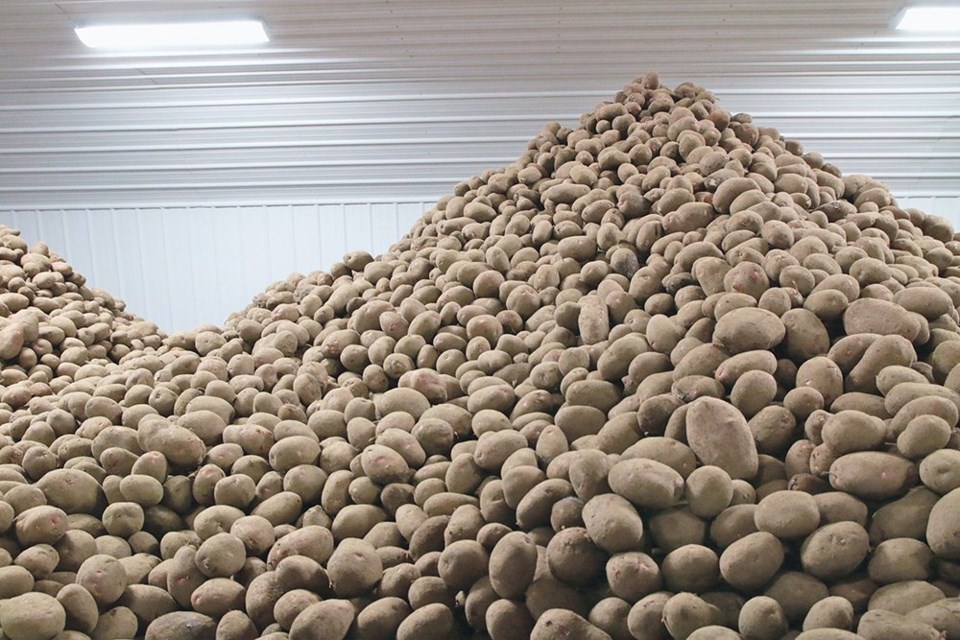However, significant challenges remain with Prince Edward Island, the nation’s largest producer, dealing with an export ban while a tough weather year in the West might mean production will fall short of being able to meet an increase in processing capacity.
Nearly 390,000 acres were seeded primarily in the three largest potato growing provinces of P.E.I., Alberta and Manitoba with production up more than 18 percent from 2020 and yields increasing from 293 cwt. to 322 cwt. this year, said the StatCan data released this month.
Kevin MacIsaac, general manager of Potato Growers of Canada, said the initial indications of a good harvest this year proved to be accurate despite some areas where weather impacted producers in the western provinces.
Compared to 2020, which saw production dip, 2021 has turned into a rebound year for the growers, he said.
But challenges in the form of excessive heat on the Prairies this summer and a November federal ban on exports of P.E.I. spuds to the United States due to potato wart in two fields on the island could take a bite out of this year’s bottom line.
Island farmers are raising concerns about the future of their bumper crop with the P.E.I. government announcing two assistance programs earlier this month to help growers and truckers who have had their livelihoods affected by the export ban.
“We know that our provincial agriculture industry is strong and has played a leading role in helping our provincial economy through the ongoing COVID-19 pandemic,” said Bloyce Thompson, P.E.I. minister of agriculture, in a release announcing financial supports.
“With these current trade restrictions imposed on them through no fault of their own — they need our help now.”
The ban could have devastating effects on growers, said MacIsaac.
“On the fresh side, about 60 percent the production out of P.E.I. went to the U.S. so where will that go if it remains closed? It would have to be marketed in the rest of Canada,” said MacIsaac. “That’s the difficulty and the challenge because we already have a market that has enough supply right now.”
If a solution to the export issue can’t be reached, “growers are literally going to go broke financially if they don’t have access to that market,” he said.
Processing potatoes in the West, however, have seen growth in capacity in Alberta and Manitoba with Simplot’s Portage la Prairie facility and Cavendish Farm’s Lethbridge plant.
“There is opportunity and need for those provinces to utilize more potatoes and there is additional potatoes in the East based on the growing season,” said MacIsaac. “The challenge is to get them from point A to point B, east to west.”
The sector has rebounded from a drop in demand for processed products linked to the COVID-19 pandemic and the shuttering of restaurants during lock-down restrictions, said MacIsaac, which is a positive sign.
“The market is there for potatoes, consumption is good, so that bodes well for a decent year if we can even out the supply among the areas that need it,” he said.

